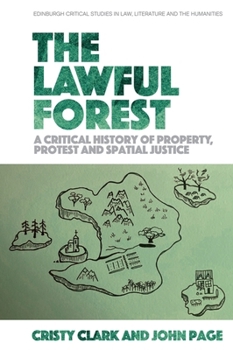The Lawful Forest: A Critical History of Property, Protest and Spatial Justice
Using the forest as a thematic device, Clark and Page explore the tensions that pervade our propertied relationships; between commodity and community, abstraction and context, and private enclosure and the public square. They draw on a range of case studies including the 13th century Forest Charter, Thomas More's Utopia, the Diggers' radical agrarianism, the Paris Commune's battle for the right to the city, and Australian forest protestors of the late 20th and early 21st centuries. By analysing these movements and their contexts, Clark and Page illustrate the origin, history and legal status of the lawful forest and its modern-day companions. Although the dominant spatial paradigm is one where private rights prevail, this book shows that communal relationships with land have always been part of our law and culture.
Format:Paperback
Language:English
ISBN:1474487459
ISBN13:9781474487450
Release Date:May 2024
Publisher:Edinburgh University Press
Length:248 Pages
Weight:0.78 lbs.
Dimensions:0.5" x 6.1" x 9.2"
Related Subjects
LawCustomer Reviews
0 rating





